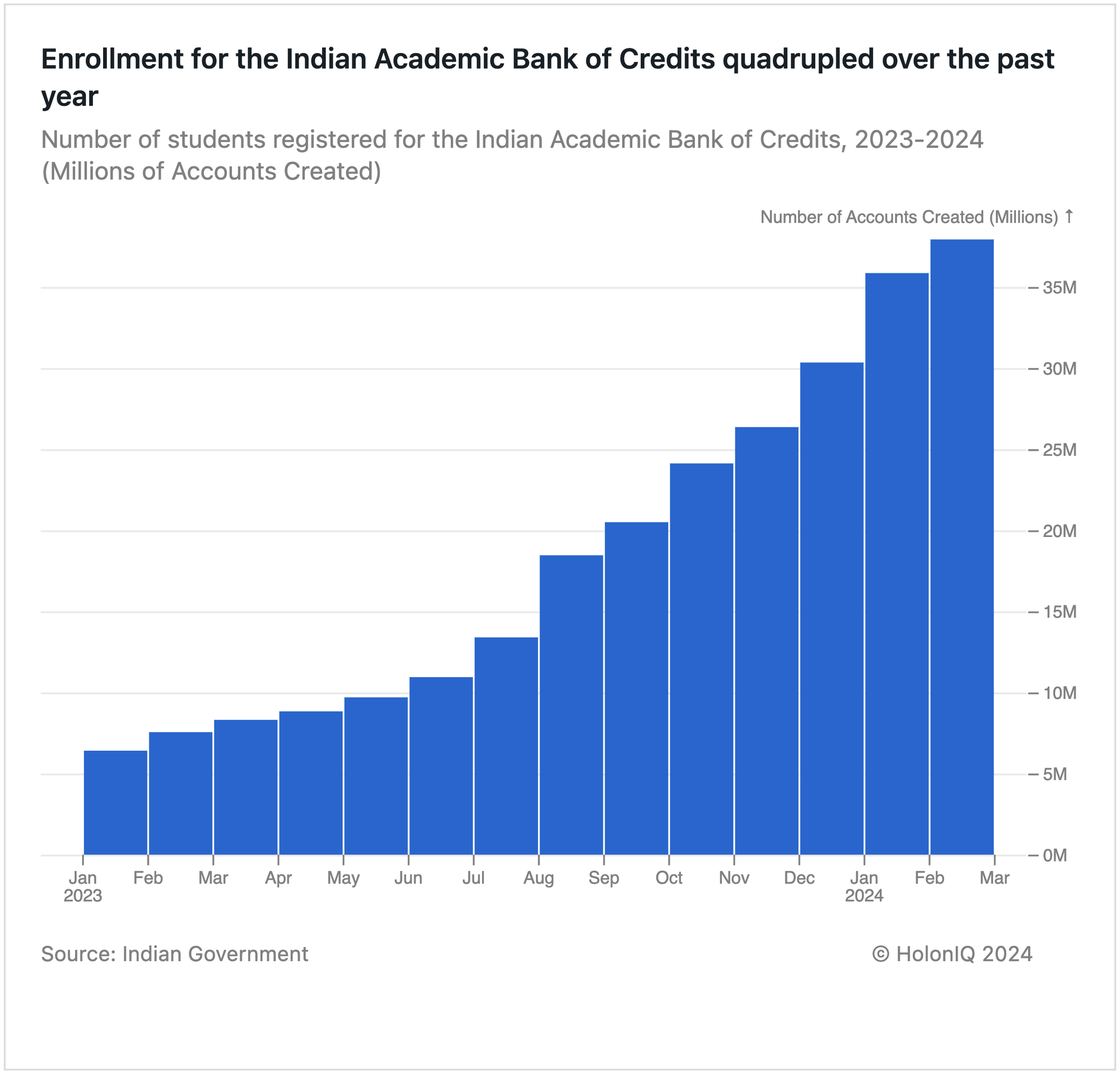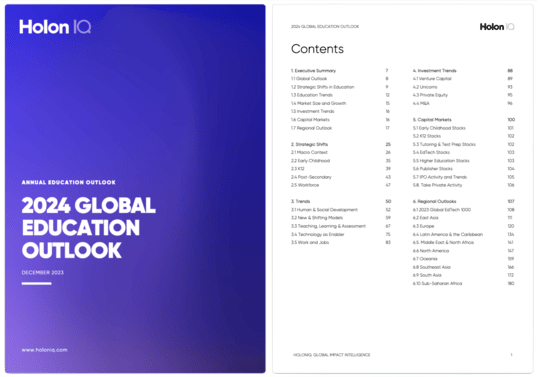🏅 Credentials and Badging
Credentialing has evolved from paper-based certificates to digital badges, meeting demand for verification of more detailed skills and knowledge and facilitating mutual and prior recognition of learning. Systematic hurdles remain, however government policy and initiatives are making headway.
Happy Monday 👋
Credentials are being reimagined, transitioning from static certificates that acknowledge the accomplishment of formal qualifications to digital badges for everything from skills demonstrated, participation in professional activities, through to accredited qualifications. While it's still a messy landscape, longstanding barriers related to digital infrastructure, trust and agreed standards are slowly being addressed as governments create policy and digital systems, and the market continues to seek modern solutions to the recognition and transferability of a broad range of knowledge and skills.
This Week's Topics
- 🏅 Credentialing. Mapping 140+ global players across the landscape
- 📊 Chart Spotlight. Over 37 million students registered with the Indian Academic Bank of Credits
- ✍️ Higher Education Digital Transformation. Participate in our survey
- 📖 Annual Education Outlook. 180+ pages of trends, insights, and data
- 💰 Education Deals of the Week. Funding, M&A and Grants
Don't forget to check out the 2024 Global Education Outlook and sign up for our new Daily Newsletters, 'Chart of the Day' and 'Impact Capital Markets'. For unlimited access to over one million charts, request a demo.
🏅 Credentialing Market Landscape
Traditional credentialing models are experiencing a rapid shift, driven by technological advancements and growing demand for the acknowledgment of a broad range of knowledge and skills. While digital credentials and badges can make it easier to display achievements, prevent fraud, and facilitate recognition of qualifications and skills, there is still time before industry practices catch up with technology systems.
Digital credentials offer a solution to the growing demand for easy verification of specific skills and cater to the needs of formal educational institutions like universities and corporations, providing an authenticated method of validating employees' skills, qualifications, and achievements across various professional domains. The portable nature of digital credentials allows them to be easily shared and verified across various platforms and contexts, a feature that traditional paper-based certificates lack. Governments worldwide are also catching onto the benefits and increasingly adopting their use for the issuing of certifications, licenses, and badges.
🏅 Credentialing - Market Map

📊 Charts Spotlight - Over 37 Million Students Registered to Indian Academic Bank Of Credits
Subscribe to the HolonIQ newsletter 'Chart of the Day', a daily newsletter that helps explain the global impact economy, from climate tech to education and healthcare.

Participation in the Indian Academic Bank of Credits (ABC) has quadrupled in the last year, now reaching almost 37 million student enrolments. The Academic Bank of Credits (ABC) framework, implemented through India's National Education Policy (NEP) 2020, the serves as a virtual repository for student credits, enabling higher education institutions to digitally store credits earned by students and streamline the transfer and credit recognition process between institutions. India has joined the list of countries and regions that are also implementing similar initiatives.
✍️ Participate in HolonIQ's Annual Higher Education Digital Transformation Survey
Digital adoption and transformation remain the biggest challenge for universities, according to results from HolonIQ's annual Higher Education Digital Transformation Survey. We are still gathering feedback from our Global Higher Education Panel and would love to hear from your institution! Participants of this research receive a full report and can nominate their institution for a HolonIQ Case Study.
Digital Capability Gaps across People, Process and Technology

The HEDC framework offers an overarching view for institutions to map and benchmark digital capabilities across the learner lifecycle to support practical and sustainable approaches to digital services and online learning. Learn more about the HEDC and use the Miro Template to kick off conversations at your institution.
📖 2024 Global Education Outlook
HolonIQ's annual analysis of the global education economy offers over 180 pages of in-depth insights on market data, investments, strategic shifts, and trends in education. Download the extract or purchase the full report.

💰 Education Deals of the Week
HolonIQ actively monitors and tracks funding flows in the education market, spanning across all regions and transaction categories. Subscribe to our Daily Capital Markets newsletter to catch the top deals for each day.
Funding
👨💼 Interview Kickstart, a platform helping software engineers with technical interviews, raised $10M to address the digital workforce gap.
✅ Graide, a UK-based AI-based assessment platform for teachers, raised $2M and plans to expand in the UK and target new markets in the US and Canada.
🌕 Moonhub, a VR training platform raised $1.4M in investment to drive product development and market expansion.
M&A
🏫 City, University of London, and St George’s, University of London have agreed to merge, forming a multi-faculty institution focused on the health workforce.
✍️ Houghton Mifflin Harcourt, a digital K12 platform, acquired Writable, an AI-powered writing assessment and practice solution, and launched HMH Labs, a new incubation team focused on the development of emerging technologies, including generative AI.
📱 Erudifi, a provider of digital financial services for students in Southeast Asia, acquired Singapore-based online learning platform, Doyobi.
🧑⚕️ Level Education Group, a provider of online continuing education courses to mental health, nursing, and case management professionals, acquired CEU Creations, a similarly-focused livestream training company.
🍃 The B2W Group, a provider of pre-employment and bootcamp courses, acquired ECTA Training, a green energy skills training provider.
Grants
🇺🇸 Philanthropist Ruth Gottesman made a historic contribution of $1 billion to ensure perpetual tuition coverage for students at the Albert Einstein College of Medicine in New York City.
🇬🇧 Solihull College & University received £26.7 million to fill skills gaps in creative industries through bootcamps.
🇺🇸 Montana State University's rural education initiatives received a $2.5 million boost from Margaret A. Cargill Philanthropies, enhancing statewide efforts.
Thank you for reading. Have a great week ahead!
Have some feedback or want to sponsor this newsletter? Let us know at hello@holoniq.com
